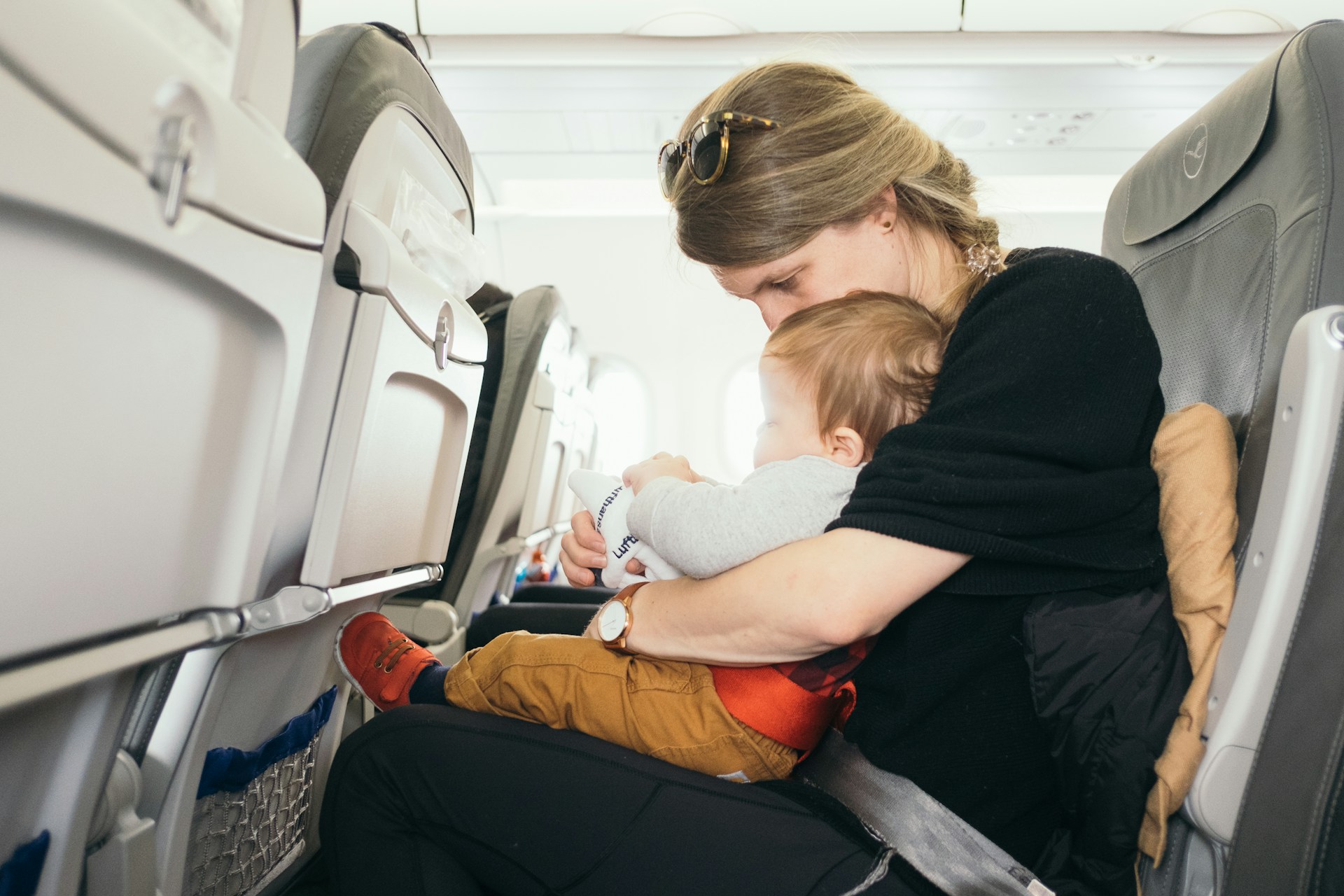
Car vs Plane: What to Consider When Travelling with a Baby
Parents often face common concerns when travelling with a baby, like ensuring comfort and keeping them entertained.
The prospect of leaving the familiar home environment can also make these tasks even more daunting, increasing anxiety about the journey.

Among these concerns is the crucial decision to travel by car or plane. This choice can significantly impact the ease and enjoyment of the trip. Each option has benefits and drawbacks, so parents must weigh these factors carefully.
Here, we’ll explore five key points to help you decide whether to travel by car or plane with your baby, ensuring a smoother journey for everyone.
Comfort and Convenience
One of the biggest advantages of car travel is creating a comfortable environment for your baby. Using a baby seat, for example, ensures your child is properly supported, which can make a big difference during long journeys. Baby seats are designed to keep your little one secure and comfortable, which is essential for their wellbeing.
The comfort of a baby seat allows for a more relaxed travel experience. Babies can sleep more soundly and enjoy the ride without feeling cramped. This can lead to fewer disruptions and a more pleasant journey for everyone. However, car journeys can become monotonous, and babies might become restless despite the comfort of their seats. Plan regular breaks to allow your baby to stretch and get some fresh air; this can help break up the journey and keep your baby content.
Packing Essentials
When travelling by car, you can pack all the baby essentials without worrying about space restrictions. Bring extra nappies, clothes, toys, and a travel cot—this flexibility can make road trips more convenient for families with young children.
Having all the essentials means you’re always prepared for any situation. You can easily change nappies, feed your baby, and entertain them with their favourite toys. This level of preparedness can help reduce stress and ensure a smoother journey. On the downside, packing too much can lead to a cluttered car, making it hard to find things when needed. To avoid this, organise your items in labelled bags or containers and keep the most important items within easy reach. This way, you can stay organised and avoid unnecessary delays.
Travel Time and Flexibility
One of the main advantages of flying is the significantly reduced travel time, especially over long distances. This can be a major benefit when travelling with a baby, as shorter travel times generally mean less fuss and fewer disruptions. Planes also offer a more predictable schedule, reducing the chances of unexpected delays.
The quicker travel time of flying means you and your baby can arrive at your destination sooner, allowing more time to settle in and enjoy your trip. This can be particularly advantageous for international or cross-country trips where driving takes much longer. However, flying comes with challenges like navigating airports and adhering to strict schedules. To ease this process, arrive at the airport early to allow ample time for check-in and security. Use a baby carrier to keep your hands free and make moving through the airport more manageable.
Cost Considerations
Travelling by car can often be more economical than flying, especially for short to medium distances. You can avoid the cost of plane tickets, airport parking, and additional luggage fees. This can be a significant saving for families on a budget. Driving also allows you to choose more affordable accommodation and stop at cheaper dining options. These savings can add up, making road trips a more cost-effective option. However, long car journeys come with costs, like fuel, tolls, and potential wear and tear on your vehicle.
To keep expenses in check, plan your route carefully to avoid unnecessary detours and consider using fuel-efficient driving techniques. These steps can help you stay within budget while enjoying the benefits of road travel.
Stress Levels and Flexibility
Travelling with a baby can be stressful, regardless of the mode of transport. Cars offer the flexibility to stop whenever needed, allowing you to tend to your baby’s needs without the pressure of adhering to a strict schedule. This can reduce stress and make the journey more enjoyable for you and your baby. Being able to stop as needed means you can take breaks whenever your baby needs feeding, changing, or simply a break from the car seat. This can help keep your baby calm and happy, reducing the overall stress of the journey.
On the other hand, driving in a confined space for long periods can become challenging. To manage this, ensure your car is well-ventilated and pack plenty of toys and activities to keep your baby entertained. Regular stops and a positive attitude can also help make the journey more pleasant.
Final Thoughts
Travelling with babies by car or plane is challenging due to the different needs and comforts required. Each mode of transport offers unique benefits and drawbacks, making it essential to consider what will best suit your family’s needs. While this post covers some key points, there’s always more to learn. If you want more information or have personalised questions, consider reading more or seeking professional guidance.








